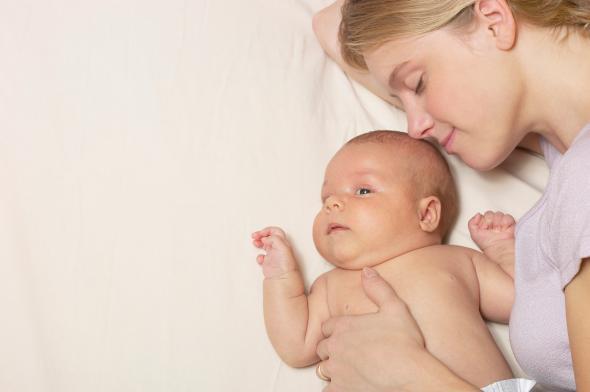The United States Preventive Services Task Force just issued new guidelines on screening for depression, and among them is a recommendation to pay more attention to pregnant women and new mothers. For the first time, the government-appointed health panel said that primary care doctors and OB-GYNs should make asking pregnant woman and new mothers about their mental health a routine part of their care and that it should be covered by the Affordable Care Act. They say doctors don’t need any specific mental health training to do this, and can rely on something relatively simple like the Edinburgh Postnatal Depression Scale, a 10-question survey that asks women questions about their levels of sadness and anxiety.
In their previous set of recommendations in 2009, the panel advised that doctors offices should only screen for depression and anxiety if they have they staff members who can help treat the illness. They’ve since changed their minds, and recommend screening even without the presence of staff who are trained in mental health, because “such support is now much more widely available and accepted as part of mental health care.” As for treatment for maternal mental health issues, they suggest trying Cognitive Behavioral Therapy before antidepressants, which can be riskier for fetuses— though much less than previously thought.
Pre- and postpartum depression and anxiety affects an estimated 10 to 15 percent of women. Depression in pregnancy can hinder the development of the fetus and increase the risk of miscarriage. Depression after pregnancy can hinder the emotional and cognitive development of the young child. Also, it makes women feel really terrible.
Mental health advocates working to improve the way our healthcare system treats pregnant women and new mothers are happy with the recommendations, but skeptical about how much change screening alone can make. “It’s wonderful to screen everyone, but if you don’t have trained providers to send them to, then what?” asks Ann Smith, President of Postpartum Support International. “You see the glitch?”
According to Smith and others in the field, there is a scarcity of mental health professionals properly trained to deal with this variety of depression and anxiety. The diagnosis and treatment of these disorders require special training that is not regularly offered in nursing or medical school. “We are not talking about a straightforward condition,” says Karen Kleiman, founder and director of the Postpartum Stress Center. “It is very subjective and on a continuum. The doctor has to figure out whether what the mother has is baby blues or depression, to know what is normal and what isn’t. Also, the mother has to feel safe enough to speak.”
Rebecca Benghiat, Executive Director of the Seleni Institute, also notes that intrusive thoughts, which are very common for new mothers, might throw some people off. “If providers don’t know that it’s normal to have thoughts about hurting one’s baby, they might think that the mom will really hurt her baby.”
There’s also the issue of how to pay for treatment once a mother is diagnosed as depressed or anxious. Kleiman says that many mental health practitioners that can help these women don’t take insurance, and the ones that do are often backed up. In New Jersey, where they already require universal screening of mothers for postpartum depression, Medicaid recipients did not see an improvement in treatment.
According to these advocates, there has been some progress in getting mental health training into medical and nursing schools, but it’s far away from being the norm. In the meantime, a number of independent organizations are trying to fill in these gaps by offering training sessions that can help clinicians in diagnosing and treating these disorders. “Any intervention is better than no intervention,” Benghiat says. “More screening will normalize the issue, which is a good thing. So we know it won’t make them worse, though we are not sure if it will make them better either.”
